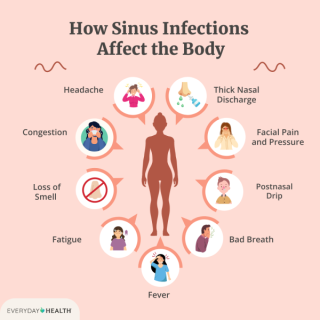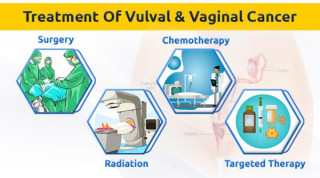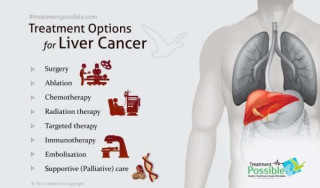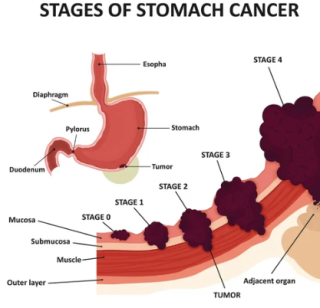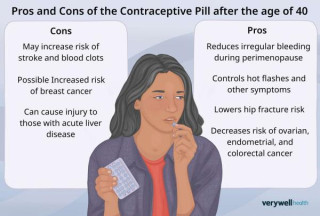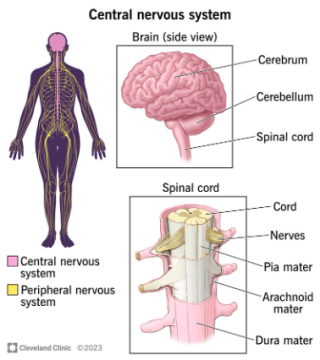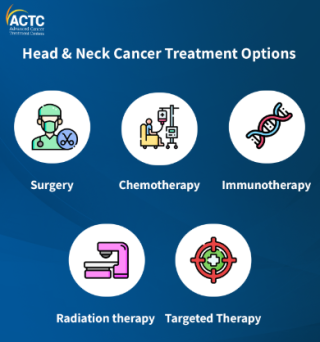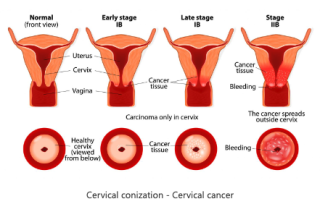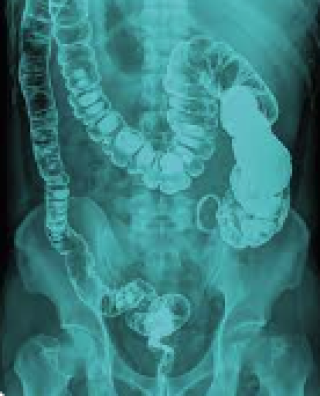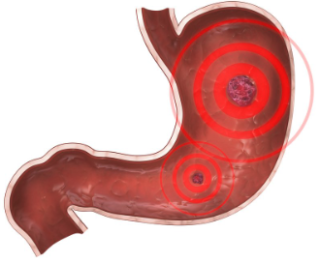SouthEast Asia Advertising Market - Comprehensive Analysis by Country, created at Jan 26, 2026 |
Meta Interview - Designing a Video Streaming Serviceupdated at Nov 07, 2025 1,473 1,473 This post explores the key considerations and thought processes involved in designing a video streaming service, |
Treatment for Lyme diseasecreated at May 06, 2009 1,323 1,323 Lyme disease is treated with antibiotics, |
What should you ask your physician about endometrial cancer?updated at Nov 22, 2025 1,675 1,675 Talking to Your Doctor About Endometrial Cancer: Questions to AskNavigating an endometrial cancer diagnosis requires open and thorough communication with your physician.Asking the right questions can empower you to make informed decisions about your treatm... |
How do you diagnose endocrine cancer?created at May 04, 2009 1,239 1,239 Diagnosing endocrine cancer typically involves a combination of physical examination, |
Essential Questions to Ask Your Doctor About Brain Cancer Treatmentcreated at May 04, 2009 1,254 1,254 Navigating a diagnosis of brain cancer can be overwhelming, |
Understanding Surgery for Brain Tumors: A Comprehensive Guidecreated at May 04, 2009 1,362 1,362 Brain tumor surgery aims to remove as much of the tumor as safely possible while minimizing damage to healthy brain tissue.The approach varies depending on the tumor's location, |
Exploring Treatment Options for Bone Cancer: A Comprehensive Guidecreated at May 03, 2009 1,540 1,540 Treatment for bone cancer depends on several factors including the type and location of the cancer, |
Navigating the Maze of Sinusitis Medications: Understanding Side Effectscreated at May 08, 2009 1,477 1,477 Sinusitis medications, |
Exploring Antibiotics for Sinus Infections: Understanding Treatment Optionsupdated at Nov 07, 2025 1,529 1,529 Sinus infections, |
Navigating the Search for Sinus Specialists: A Guide to Finding the Right Doctorcreated at May 07, 2009 1,337 1,337 Finding the right sinus specialist involves researching doctors' credentials (board certification in otolaryngology, |
Is Getting a Tattoo During Pregnancy Safe? Here's What You Need to Knowupdated at Nov 09, 2025 1,812 1,812 Getting a tattoo during pregnancy is generally not recommended by healthcare professionals.While hard evidence demonstrating that tattoo ink directly harms the fetus is lacking, |
Understanding the Chicken Pox Vaccine - Is it a Live Vaccine?created at May 13, 2009 1,388 1,388 The chickenpox vaccine is a live attenuated vaccine, |
Finding the Right Time: When Should You Start Wearing Lipstick?updated at Nov 08, 2025 1,320 1,320 When to Begin Your Lipstick JourneyThe right time to start wearing lipstick is a deeply personal decision.Some may begin experimenting in their early teens, |
Navigating Clinical Trial Decisions for Head and Neck Cancer Treatmentcreated at May 09, 2009 1,284 1,284 Clinical trial decisions for head and neck cancer treatment depend on several factors, |
Exploring Three Vulvar Cancer Treatmentscreated at May 05, 2009 1,286 1,286 Three common treatments for vulvar cancer include surgery, |
Treatment for Liver Cancer? What should I ask?created at May 04, 2009 1,224 1,224 When discussing liver cancer treatment options with a healthcare professional, |
The basic information for Stomach cancercreated at May 03, 2009 1,368 1,368 Stomach cancer, |
Exploring the Relationship Between Birth Control Pills and Liver Cancer Riskcreated at May 04, 2009 1,280 1,280 Studies have shown a slightly increased risk of developing liver cancer in women who use oral contraceptives, |
Demystifying the Central Nervous System: Understanding Its Vital Functionscreated at May 03, 2009 2,380 2,380 The central nervous system (CNS), |
Exploring Treatment Options Beyond Surgery for Head and Neck Cancerscreated at May 09, 2009 1,269 1,269 Treatment options for head and neck cancers beyond surgery include radiation therapy, |
Everybody gives me different advice. How do I know who to believe?updated at Nov 29, 2024 1,236 1,236 Postpartum depression (PPD) is a form of depression that can affect women after childbirth.It's characterized by persistent sadness, |
Is Getting a Mud Bath Safe During Pregnancy? Here's What You Need to Knowupdated at Nov 11, 2025 1,900 1,900 Mud baths can sound like a relaxing and therapeutic experience, |
Herbal tea during pregnancyupdated at Nov 29, 2024 1,435 1,435 While many herbal teas are generally considered safe, |
The Morning Cup - Navigating Coffee Consumption During Pregnancyupdated at Nov 29, 2024 1,405 1,405 Enjoying coffee during pregnancy requires mindful moderation.While small amounts of caffeine (around 200mg or less per day, |
Understanding Shading vs. Color Fading in Carpetsupdated at Nov 29, 2024 1,565 1,565 Understanding the difference between shading and color fading in carpets is crucial for assessing carpet quality and longevity.Shading refers to slight variations in color within a dye lot, |
Common Wallpaper Characteristicsupdated at Nov 29, 2024 1,268 1,268 Awareness of common wallpaper characteristics, |
How to Flatter with Words and Navigate Its Nuancesupdated at Nov 29, 2024 1,379 1,379 Words that flatter others with sugar application or use beneficial conditions to entice them.A gag theory can make an object feel good, |
12 Proven Strategies to Work Smarter, updated at Nov 07, 2025 |
Understanding Your Risks for Breast Cancercreated at May 03, 2009 1,225 1,225 When it comes to breast cancer, |
Managing Expectations: How Long Until You Feel Better with Sinusitis Treatmentcreated at May 08, 2009 1,328 1,328 One common question that arises among individuals undergoing treatment for sinusitis is, |
Navigating Breast Cancer Treatment: Choosing the Right Path for Youcreated at May 03, 2009 1,379 1,379 Choosing the most appropriate treatment for breast cancer can feel like a daunting task, |
Exploring Safety: Oral Surgery with General Anesthesia for People with Epilepsycreated at May 26, 2009 1,480 1,480 For individuals with epilepsy considering oral surgery under general anesthesia, |
Demystifying Sinusitis Diagnosis: Insights into the Processupdated at Nov 08, 2025 1,532 1,532 Clinical EvaluationThe initial step in diagnosing sinusitis revolves around a comprehensive clinical evaluation.This includes a detailed discussion of your medical history, |
Safety Considerations for Oral Surgery During Pregnancycreated at May 26, 2009 1,546 1,546 Undergoing oral surgery, |
Precision and Clarity: Unraveling the Significance of Conization in Cervical Cancer Diagnosiscreated at May 04, 2009 1,475 1,475 Conization, |
Navigating Hope: Understanding Chemotherapy in Stomach Cancer Treatmentcreated at May 04, 2009 1,314 1,314 In the intricate landscape of stomach cancer treatment, |
Understanding the Family History of Stomach Cancercreated at May 04, 2009 1,239 1,239 Family history plays a crucial role in understanding an individual's risk of developing certain diseases, |
Debunking Myths - Drinking Milk from Cows Given BST during Pregnancycreated at Nov 18, 2009 1,443 1,443 The use of bovine somatotropin (BST), |
Understanding the Risks - Vision-Correction Surgery During Pregnancyupdated at Feb 29, 2024 1,342 1,342 Considering LASIK eye surgery during pregnancy? Think again. While vision correction may seem like a convenient solution, |
Is It Safe to Use a Vibrating Chair During Pregnancy?updated at Feb 29, 2024 1,376 1,376 During pregnancy, |
Gather Information From a Number of Sources To Optimize The Performance Review Processcreated at Feb 22, 2014 1,850 1,850 Gathering performance information from a variety of sources increases objectivity and ensures all factors impacting performance are considered.This information should include objective data like sales reports, |
Evaluate and Encourage Full Participation and Success To Optimize The Performance Review Processupdated at Oct 30, 2025 1,344 1,344 Okay, |
Document is the killer application To Optimize The Performance Review Processupdated at Nov 07, 2025 1,311 1,311 Effective performance reviews are crucial for employee development and organizational success.A well-documented record of performance is essential for a fair and productive review process.Consistent and thorough documentation, |
Ensure an Ongoing Process To Optimize The Performance Review Processupdated at Nov 07, 2025 1,297 1,297 A truly effective performance review process isn't a one-time annual event; it's a continuous, |
Sample 360 degree feedback for performance assessment surveysupdated at Nov 07, 2025 1,706 1,706 360-degree feedback is a powerful performance evaluation tool that gathers input from an employee's peers, |
What do I need to know about the treatment for colorectal cancer?created at May 04, 2009 1,306 1,306 The doctor develops a treatment plan to fit each patient’s needs. Treatment for colorectal cancer depends on the size and location of the tumor, |
How will I be diagnosed for colorectal cancer?created at May 04, 2009 1,471 1,471 To find the cause of symptoms, |





